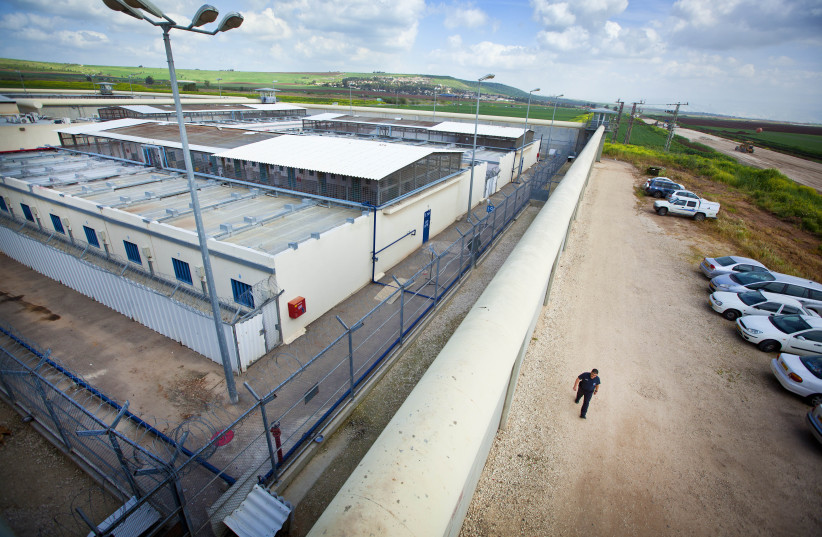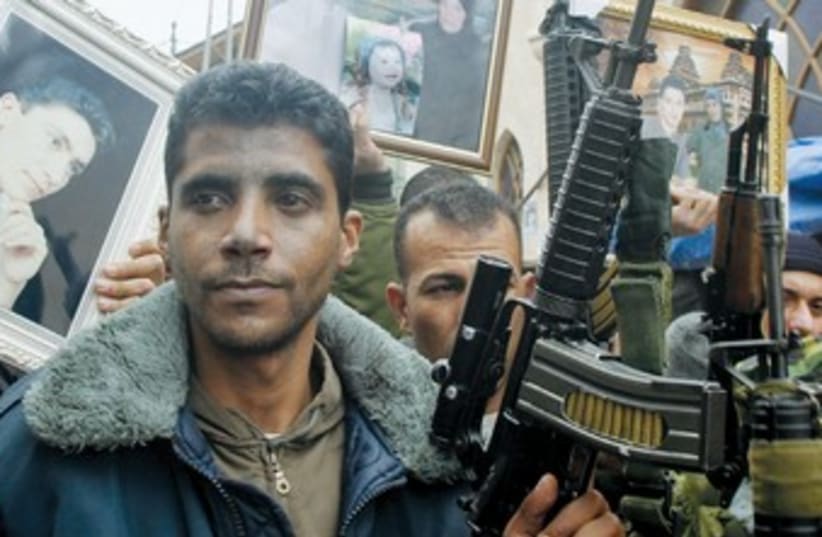Zakaria Zubeidi, one of the six Palestinian inmates who escaped from Gilboa Prison, was one of the “symbols” of the Second Intifada, which erupted in September 2000.
The five other escapees, all members of Palestinian Islamic Jihad (PIJ), are less known to the Palestinian and Israeli public. But all six men were involved, directly and indirectly, in a series of terrorist attacks against Israelis.
Zubeidi, who once called himself a peace activist, was known for his close relations with several Israelis, including journalists covering Palestinian affairs. He would regularly call some journalists to brief them on the latest developments in the Jenin area or to invite them to interview him and his friends.
His mother and brother were reportedly killed in separate incidents involving IDF soldiers who raided the Jenin refugee camp, where the family lives.
The 45-year-old became one of the leaders of Fatah’s armed wing, the Aqsa Martyrs Brigades, in the camp and the Jenin area years after he had been recruited to the Palestinian Authority Security Forces.
He and his men were known for imposing a reign of terror and intimidation on many Palestinians in the Jenin area, especially businessmen and merchants who were forced to pay protection money to the Fatah gangsters.
Zubeidi’s activities with the Brigades often put him on a collision course not only with Israel, but also with the PA political and security establishment.
Some Palestinians and Western journalists referred to Zubeidi back then as the “Sheriff of Jenin,” because the armed group he led was considered more influential than the PA. He was also a member of the Fatah Revolutionary Council, a key decision-making body of the faction headed by PA President Mahmoud Abbas.
According to Palestinian and Israeli sources, Zubeidi survived at least four assassination attempts by Israel.
Although he was wanted by Israel for his involvement in a series of terrorist attacks, Zubeidi was included in an amnesty offered to members of the Aqsa Martyrs Brigades in 2007. The amnesty was reportedly rescinded a few years later after it became clear that he had not abandoned the path of terrorism.
Shortly after the amnesty, he was hired by Israeli Arab filmmaker Juliano Mer-Khamis as director of the Freedom Theater in the Jenin refugee camp. On April 4, 2011, Mer-Khamis was assassinated by a masked gunman in Jenin. The assassin was never caught, and some Palestinians believe that Zubeidi was connected to the murder.
In a number of interviews, Zubeidi claimed that he had not received a full pardon from Israel. He accused the PA of lying to him and sought shelter in the Palestinian Security Forces headquarters in Jenin to avoid being captured by the IDF.


In February 2019, he was arrested by the IDF and charged with carrying out at least two shooting attacks on civilian buses in the West Bank.
THE FIVE PIJ prisoners who escaped together with Zubeidi include Mahmoud Ardah, 46, who has been in prison since 1996, and his brother Mahmoud Ardah, 39, who has been incarcerated since 2002. The two are from the town of Arrabe near Jenin, and are serving life sentences for carrying out terrorist attacks.
A statement issued by PIJ described Mahmoud as the “Emir of the Palestinian Islamic Jihad Prisoners in Gilboa Prison.”
The statement identified the three remaining PIJ inmates as Yakoub Mohammed Qadri, 49, who is serving a life sentence; Ayham Nayef Kamamji, 35, also serving a life sentence; and Munadel Yakoub Enfayat, 26, who has been in prison since 2019.
PIJ and other Palestinian groups, including Hamas and the ruling Fatah faction, welcomed the escape of the “heroes” from prison.
“In the face of this great heroic operation, we affirm the following,” PIJ said. “First: We salute the six heroic prisoners who dug the earth with their nails to dispel the darkness of the cells, and dispel with it the illusions of the enemy that boasts of its powerful security measures and the strength of his fortifications.
“Second: The process of gaining freedom constituted a great heroic act, and caused a severe shock to the Zionist security system. This operation will be added to the heroic record of our Palestinian people.”
Hamas spokesperson Fawzi Barhoum said the escape of the prisoners from Gilboa Prison was a “brave and heroic act, and a real challenge to the Israeli security system.
“If a number of Palestinian prisoners in the prisons of the Zionist occupation managed to extract their freedom, despite all the security procedures and complications, it is a heroic and brave act and a victory for the will and determination of our heroic prisoners, and a real challenge to the Zionist security system, which claims to be the best in the world,” Barhoum said.
Several Fatah officials and activists also praised the escape of the six inmates.
“We salute Zakaria Zubeidi, member of the Fatah Revolutionary Council, and his fellow prisoners who snatched their freedom from the darkness of prison and the oppression of the jailer through the tunnel of freedom,” senior Fatah official Monir al-Jaghoub wrote on Twitter. “May God protect the heroes.”
